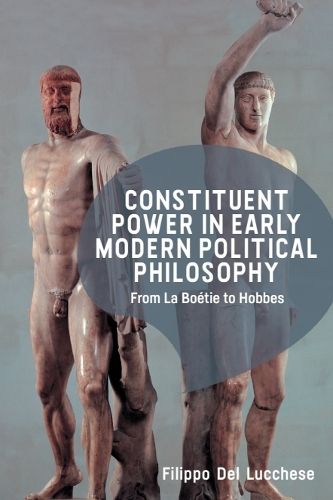Readings Newsletter
Become a Readings Member to make your shopping experience even easier.
Sign in or sign up for free!
You’re not far away from qualifying for FREE standard shipping within Australia
You’ve qualified for FREE standard shipping within Australia
The cart is loading…






This book offers an in-depth examination of constituent power through the writings of six major philosophers from the 16th and 17th centuries, highlighting how their ideas have shaped the foundation and transformation of political philosophy.
Filippo Del Lucchese delves into how La Boetie, Bodin, Lipsius, Campanella, Surez and Hobbes conceptualized and influenced the evolution of this fundamental political idea. By examining their writings, he illuminates the diverse interpretations and the profound impact these thinkers had on the formation of political authority and constitutional frameworks. He also bridges this historical analysis with contemporary debates on democracy, sovereignty and the enduring tension between political foundation and institutional stability in modern legal and political theory.
$9.00 standard shipping within Australia
FREE standard shipping within Australia for orders over $100.00
Express & International shipping calculated at checkout
Stock availability can be subject to change without notice. We recommend calling the shop or contacting our online team to check availability of low stock items. Please see our Shopping Online page for more details.
This book offers an in-depth examination of constituent power through the writings of six major philosophers from the 16th and 17th centuries, highlighting how their ideas have shaped the foundation and transformation of political philosophy.
Filippo Del Lucchese delves into how La Boetie, Bodin, Lipsius, Campanella, Surez and Hobbes conceptualized and influenced the evolution of this fundamental political idea. By examining their writings, he illuminates the diverse interpretations and the profound impact these thinkers had on the formation of political authority and constitutional frameworks. He also bridges this historical analysis with contemporary debates on democracy, sovereignty and the enduring tension between political foundation and institutional stability in modern legal and political theory.